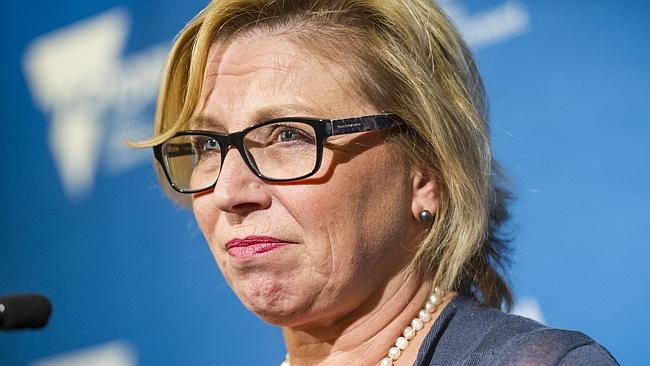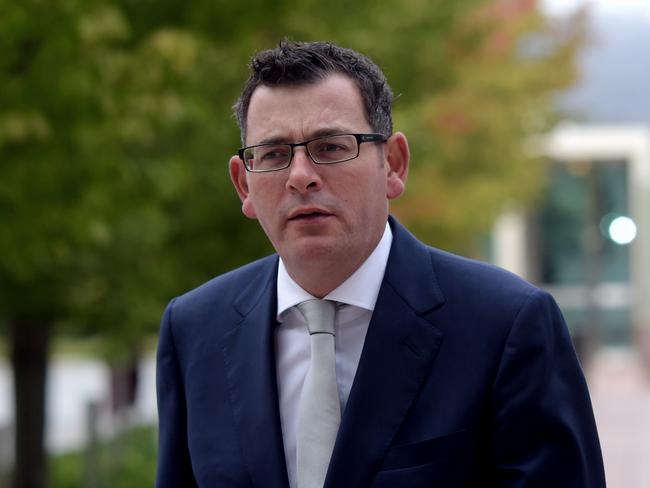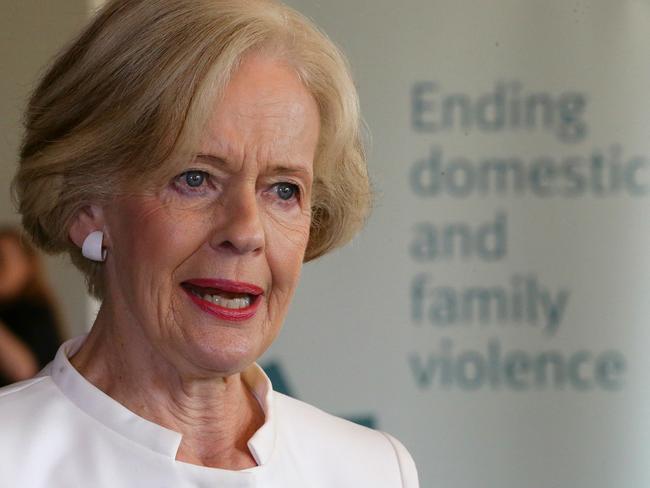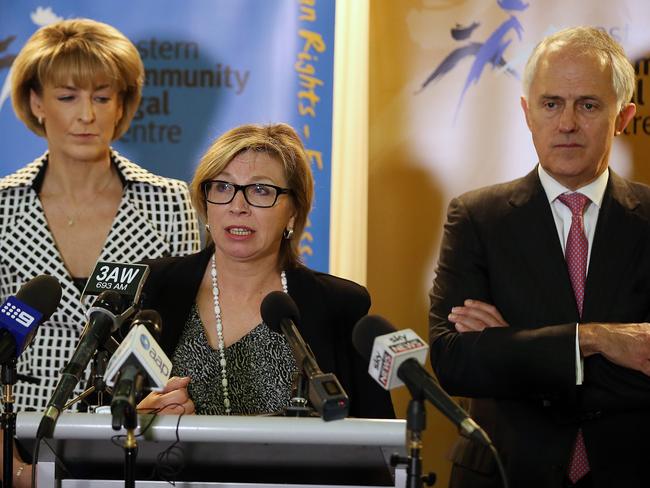Is a national approach needed to address domestic violence in Australia?
THE proposal of 227 solutions to Victoria’s domestic violence problem is great news for the state. But what about the rest of Australia?

A TEENAGER’S mother is murdered by his abusive father.
The father is jailed, the mother, obviously, and senselessly, is dead.
But when the boy, inarguably a victim of domestic violence, goes to seek support from a South Australian agency dedicated to supporting sufferers of such atrocities, he’s told there’s nothing for him.
It doesn’t make sense to Julian Roffe, chief executive of Victim Support Services, but he is the one who has to explain to young people like the one in this heartbreaking example, that’s just the way it is.
“You would think in the scenario when a child is effectively made a ward of the state because they have no parents, there would be a whole range of support services coming their way, but we frequently hear from grandparents that is completely not the case,” Mr Roffe tells news.com.au.
“Parents, too, who are victims of domestic violence will often say to us our son or daughter is affected, but we have to turn them away or try and fit them into a mental health program which can have long waiting lists and might not be equipped to deal with their issues.”
Mr Roffe was pleased to see the issue around support for young people, a “missing piece of the jigsaw” in dealing with domestic violence, addressed in recommendations of the Family Violence Royal Commission in Victoria.
The recommendations around support for youth, along with a raft of others contained in the 227-point report, have been accepted by the Victorian government and will be implemented in the time frame recommended by the commissioner, Premier Daniel Andrews has promised.
But that’s Victoria.

DO WE NEED A NATIONAL APPROACH?
Just west of the southern state’s border, in fact north and south of it as well, advocates and agency heads like Mr Roffe are crying “what about us”.
The South Australian government is the first to be directly challenged to take up recommendations proposed in Victoria.
Mr Roffe is proposing the state, and others, take on board the commission’s findings.
“The drivers of the issue, they’re universal,” he says.
“They’re not universal between Victoria and South Australia, they’re universal across the whole globe. We know what the issues are, we know what the drivers are, it’s getting agreement on what the response needs to be.”
One solution that has been proposed to avoid disparity between the states is for similar inquiries to be conducted across the nation.
But Mr Roffe believes a repeat of the 13 months of hearings and thousands of pages of reports would be “a complete waste”.
“Given Victoria has done that work, I don’t think you’re going to uncover the whole series of issues in different geographical locations. I think the core issues would’ve been covered in 13 months of hearings,” he says.
“If we ignore that, effectively what ends up is that one state has a second rate system compared to the other. We talk about a postcode lottery in health for example. We don’t want that in the face of a major social issue like domestic abuse.
“It doesn’t matter where you live, it’s consistent across every territory in Australia. It’s a national problem, it needs a national solution.”
For others, a national approach to the crisis is just not the answer.
In Western Australia, advocates believe adopting reform designed for the densely populated, smaller state, would be a disaster.
Angela Hartwig, CEO of the Women’s Council for Domestic and Family Violence Services WA, the state’s peak body for DV advocates and agencies, says the remoteness of many of the state’s communities and sensitive cultural issues need special attention.
“There’s some unique things about WA that we would have to be looking at,” she says.
“Particularly for Aboriginal and Torres Strait Island peoples. They often are living in remote areas and responses need to be better co-ordinated between Aboriginal and non-Aboriginal agencies.
“Responses have to be led and owned and driven by the community, and take into account that one size doesn’t fit all here.”

QUEENSLAND HAPPY TO GO IT ALONE
Queensland’s leading domestic violence service is also happy to leave Victoria’s recommendations to the Victorians, but not for the same reasons.
In many ways, the state is ahead of the game when it comes to addressing domestic and family violence.
In 2014, a taskforce headed by former governor-general Quentin Bryce was commissioned by Queensland’s then Liberal government to commission a comprehensive review.
When its 140 recommendations were handed down last year, Labor Premier Annastacia Palaszczuk immediately adopted them all. Many measures such as specialist courts and response training have already been trialled or implemented, with a raft of others already passed or at bill or consultation stage.
DV Connect chief executive Di Mangan says Queensland needn’t consider the Royal Commissions recommendations, as the state’s government was “full steam ahead” implementing its own changes.
But other states, she says, should take note of the two comprehensive reviews.
“The Royal Commission’s findings look very much in line look with the recommendations made by the taskforce,” she says.
“We could clearly say to the other states, we know the causes already. Have your commission if you want to, but you’ve got a taskforce report in Queensland, a commission report in Victoria, and NSW, Northern Territory, all the others could save a couple of million and adopt what’s already been investigated.”
Ms Mangan says a more streamlined national approach to addressing domestic and family violence issues has been on the cards “for years”, but it’s taken a few tragic and shocking deaths to force action.
“It’s devastating that the deaths of Tara Brown and Karina Lock, and Luke Batty in Victoria, led to this, but it has made everyone in the country listen,” she says.

The federal government has gone some way to enforce a nationwide response to what the Prime Minister has called a “national crisis”.
In his first official announcement as PM Malcolm Turnbull put forward a $100 million package to protect victims of domestic violence, and educate young men about respectful relationships.
But with court systems and other resources overseen by states, there will always be a need for each state government to enforce its own solutions.
Mr Roffe says that while a national solution would be ideal, what’s more practically needed is better communication between Commonwealth and state governments.
“That relationship is actually really critical to this, that we get some consistency of approach,” he says.
“Clearly, they’re not talking to each other, and if they are, one isn’t listening to the other.”

